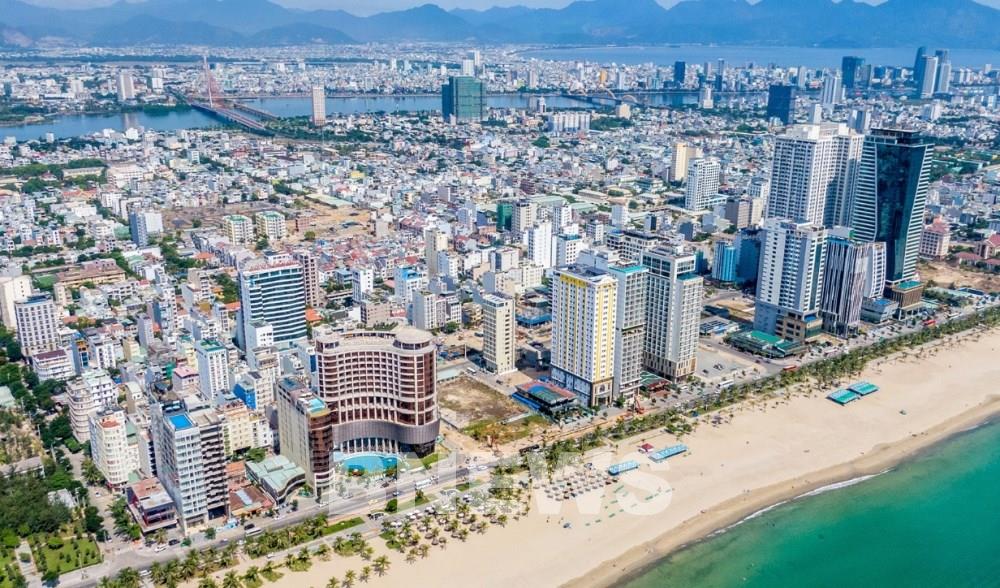In recent years remittances to the country had increased sharply, with a lot of the money going into the real estate market.

Hoang Cong Khuong has lived in Poland since 2002, and he and his wife run a small business there.
He said most of his family’s savings had been sent to Viet Nam and invested in the property estate sector here.
He now has properties in several places in the country, and he said happily he earned several times more money from this just in the last few years than he earned in Poland in the last decade.
Many of his Vietnamese friends in Poland have done the same. Some have invested hundreds of billions of dong in property on Phu Quoc Island.
Chairman of BHS Property Joint Stock Company (BHS), Nguyen Tho Tuyen, said people who are involved in business always sought to own property after they achieved some kind of financial success.
Developers of high-end apartments in Ha Noi concurred with him, saying the 30 per cent of the apartments they are allowed to sell to the foreigners are often quickly snapped up, with a majority of buyers being overseas Vietnamese.
Market observers said remittances from abroad were one of the most important sources of investment in property projects in Viet Nam.
They said in recent years remittances to the country had increased sharply, with a lot of the money going into the real estate market.
A banking executive said that 21-22 per cent of remittances went into real estate annually, second only to the amount invested in business.
The remittances coming into Viet Nam used to average US$11-12 billion a year for many years, meaning around $2.5 billion was invested in the property market.
They shot up to $13.8 billion, $15.9 billion and 16.7 billion in 2017, 2018 and 2019.
Last year, despite the economic slump caused by the Covid-19 pandemic, remittances were worth $15.7 billion, but this time a majority of it is thought to have gone into the real estate sector and not just 21-22 per cent since other asset classes and businesses had taken a beating.
Why is real estate a magnet for overseas remittances?
Analysts said overseas remittances coming to Viet Nam had been growing steadily in recent years, indicating that overseas Vietnamese have increasing confidence in investing in the country, especially in real estate.
It is noteworthy that the real estate market has become more reliable and healthier since the legal system governing it has been greatly strengthened, and developers have restructured their portfolios to align them more with actual demand and pay increasing attention to landscaping, architecture and utilities.
Industry insiders said the real estate market has many attractions for overseas Vietnamese, including diversity of products, promotions and flexible payment schedules.
Besides, Viet Nam’s economy has entered a steady and high growth trajectory while its legal system offers protection to investors and the Government’s policies are becoming increasingly open, also factors that influence overseas Vietnamese people’s decision to invest in the property market here.
Other traditional asset classes like cash have not been attractive for a while now. The interest rates on US dollar deposits were cut to zero several years ago while dong deposit rates have been steadily falling since the Covid-19 pandemic broke out.
The dong-dollar exchange rate has been rock steady in recent years, which has also contributed to eradicating the traditional habit of keeping money in the form of greenback, a habit that began decades ago when hyperinflation used to erode the value of the Vietnamese currency.
Thus, overseas Vietnamese now not only buy property in their own names but also invest in their relatives’ names since foreign citizens can only buy apartments while they are keen also on villas, houses and land.
Pham Ngoc Thien Thanh of property consultancy CBRE said the Government had stepped up investment in infrastructure to create an impetus for the development of key economic regions around the country.
The real estate sector would benefit greatly from this and attract even more investment, including from overseas remittances, he said.
Importance
Meanwhile, remittances by overseas Vietnamese are expected to be equal to foreign direct investment and foreign portfolio investment since there are over 4.5 million people in the Vietnamese diaspora abroad.
Economist Vu Dinh Anh said FDI and overseas remittances coming into the real estate sector would continue to rise thanks to the increasingly open investment environment and the attractiveness of the market due to the country’s strong international integration surging economy.
Private businesses hit hard by COVID-19
The Viet Nam Chamber of Commerce and Industry (VCCI) and the World Bank have carried out a survey of nearly 10,200 private enterprises across the country on the impacts of Covid-19 on their business.
Of them 85 per cent are domestic private companies while the rest are foreign-owned.
The poll found that 87.2 per cent of them were negatively affected in 2020, 11 per cent were not affected and only 2 per cent did well.
Enterprises that have been in business for less than three years and small and micro businesses suffered the most.
They said the pandemic made it hard for them to access customers, and the resultant drying up of cash flows meant they had to lay off workers, and supply chains were disrupted.
The sectors that suffered the worst were textile and garment, information and communications, electrical equipment, and automobile.
The surveyed enterprises wanted the Government to continue offering support like extending the deadline for paying taxes, social insurance premiums and labour union fees. —VNS





